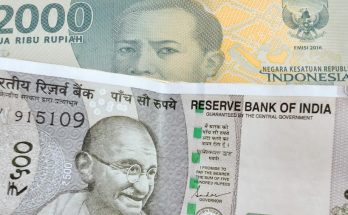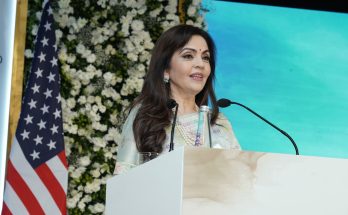 In a series of defining steps that will pitchfork India-Japan economic relations into a higher trajectory, Asia’s second and third largest economies will jointly work towards doubling Japanese foreign direct investment (FDI) and the number of Japanese companies in India within the next five years.
In a series of defining steps that will pitchfork India-Japan economic relations into a higher trajectory, Asia’s second and third largest economies will jointly work towards doubling Japanese foreign direct investment (FDI) and the number of Japanese companies in India within the next five years.
India’s Prime Minister Narendra Modi and Japan’s Prime Minister Shinzo Abe, who held wide-ranging talks in Tokyo on September 1, announced the formation of India–Japan Investment Promotion Partnership to take expanding bilateral trade relationship to the next level.
Under this investment partnership, which has the potential to be a game-changer in India’s quest for world-class infrastructure, Japan will give around 3.5 trillion yen ($33 billion) of public & private investments, including Overseas Development Assistance, to India in a five year period. This investment will be used for “appropriate public and private projects of mutual interest including in the areas of next generation infrastructure, connectivity, transport systems, Smart Cities, rejuvenation of Ganga and other rivers, manufacturing, clean energy, skill development, water security, food processing and agro industry, agricultural cold chain, and rural development,” said a joint statement entitled Tokyo Declaration for India-Japan Special Strategic and Global Partnership.
During his meeting with Mr Abe, Modi underlined his commitment to improve business environment in India including through tax, administrative and financial regulations. Earlier, in the day the prime minister had announced that he would set up a special Japan team in the PMO to facilitate single-window clearances, and non-discriminatory speedy decision making.
The two leaders also welcomed the public-private initiatives between the two countries to set up Electronics Industrial Parks in India, and discussed the possibility of developing “Japan Industrial Townships” and other similar industrial townships.
Reviewing their cooperation in the infrastructure sector, the two leaders have welcomed the progress of projects such as the Western Dedicated Freight Corridor (DFC), Delhi-Mumbai Industrial Corridor (DMIC), Chennai-Bengaluru Industrial Corridor (CBIC). Modi has also called for more Japanese investments in the development of new smart cities and industrial parks along these corridors.
The possibility of high-speed trains in India may also be realised as Abe agreed to help India implement the Shinkansen system on the Ahmedabad–Mumbai route.
India, in its part, will give more leeway for Japanese banks looking to open branches in India. New Delhi’s decision to approve the establishment of Mizuho Bank’s Ahmedabad branch was appreciated by the Japan’s prime minister.
The two countries have decided to strengthen energy cooperation through the India-Japan Energy Dialogue. They have also decided to explore new avenues for cooperation in the global oil and natural gas market, including through “joint procurement of LNG, upstream development of oil and gas, and joint efforts to promote flexible LNG markets, including through relaxation of destination clauses.”
Author Profile
- India Writes Network (www.indiawrites.org) is an emerging think tank and a media-publishing company focused on international affairs & the India Story. Centre for Global India Insights is the research arm of India Writes Network. To subscribe to India and the World, write to editor@indiawrites.org. A venture of TGII Media Private Limited, a leading media, publishing and consultancy company, IWN has carved a niche for balanced and exhaustive reporting and analysis of international affairs. Eminent personalities, politicians, diplomats, authors, strategy gurus and news-makers have contributed to India Writes Network, as also “India and the World,” a magazine focused on global affairs.
Latest entries
 DiplomacyApril 23, 2024Resetting West Asia, re-booting the world, but not fast enough: T.S. Tirumurti
DiplomacyApril 23, 2024Resetting West Asia, re-booting the world, but not fast enough: T.S. Tirumurti India and the WorldApril 22, 2024India’s G20 Legacy: Mainstreaming Africa, Global South in global agenda
India and the WorldApril 22, 2024India’s G20 Legacy: Mainstreaming Africa, Global South in global agenda DiplomacyApril 10, 2024Diplomat-author Lakshmi Puri pitches for women power at LSR
DiplomacyApril 10, 2024Diplomat-author Lakshmi Puri pitches for women power at LSR India and the WorldApril 6, 2024UN envoy pitches to take India’s solutions to the world stage
India and the WorldApril 6, 2024UN envoy pitches to take India’s solutions to the world stage







